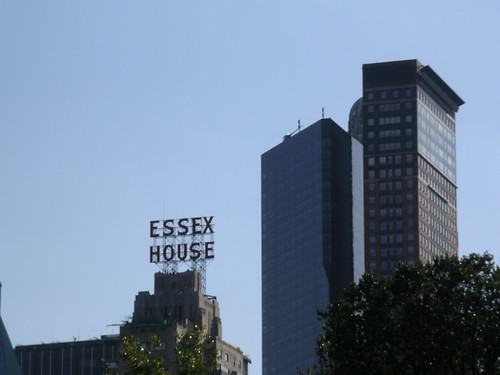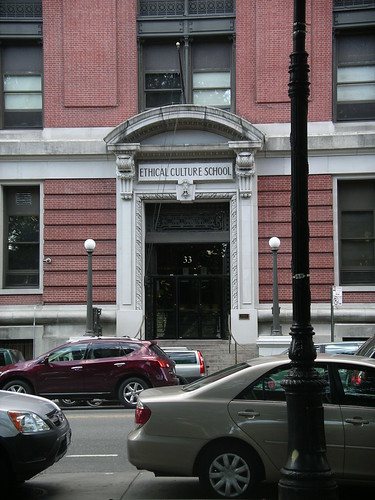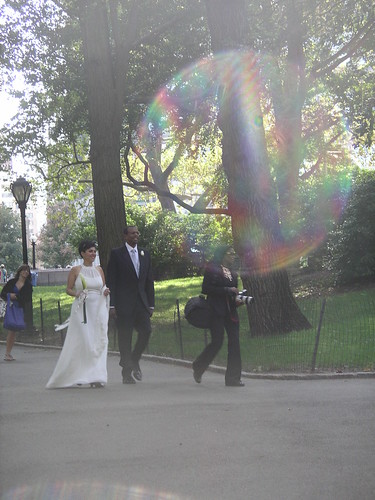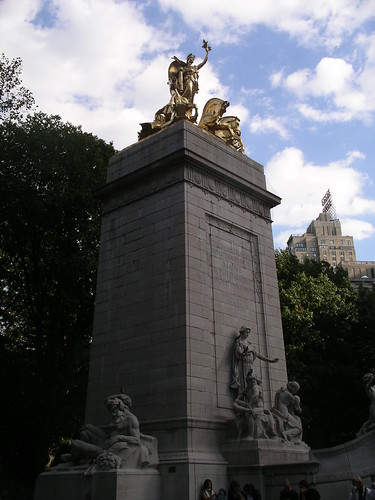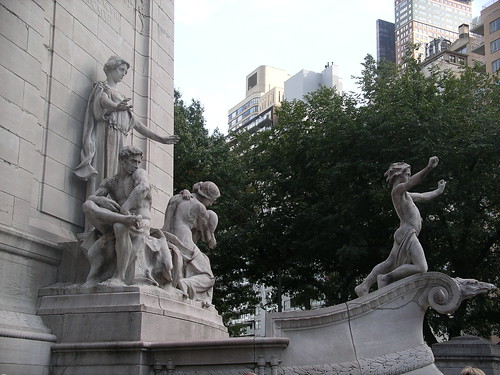When I am listening to a radio, inevitably my ears will perk up when they hear something they like. Earlier this week, while listening to Last.fm, I heard S. Carey’s “Rothko Fields.”
There’s something very hypnotizing about this small song. It does make me think of looking across an endless field. But I can also see why it’s titled after the painter Mark Rothko: his most famous paintings feel like fields. Just long, drawn-out blocks to stare at, blocks that shouldn’t be that interesting but are. This song shouldn’t be that interesting; it’s just long, drawn-out sounds, but I find myself fading away from myself when I listen to this, find myself staring but not seeing anything in front of me, occupied elsewhere in my mind, the way I am when I stare at cornfields or Rothko paintings.
 Art so frequently references other art, but I’m impressed by this S. Carey song because it references a visual work so accurately. So frequently a work of art that directly references another work of art fails to capture its original. Almost always the second work emphasizes its own poor quality by reminding its viewer or reader or listener of the quality of the first work, and thus struggles even more to stand alone as its own great piece. But when I first heard this, my computer was on the other side of the room; I was packing my bags, and I knew the moment I heard this it was something special. It was worth listening to. Only when I ran over to my computer to see who had made this and what it was called so I could return to it again did I see that it was in reference to Rothko. I was already dreaming of fields. I was already there.
Art so frequently references other art, but I’m impressed by this S. Carey song because it references a visual work so accurately. So frequently a work of art that directly references another work of art fails to capture its original. Almost always the second work emphasizes its own poor quality by reminding its viewer or reader or listener of the quality of the first work, and thus struggles even more to stand alone as its own great piece. But when I first heard this, my computer was on the other side of the room; I was packing my bags, and I knew the moment I heard this it was something special. It was worth listening to. Only when I ran over to my computer to see who had made this and what it was called so I could return to it again did I see that it was in reference to Rothko. I was already dreaming of fields. I was already there. S. Carey, I discovered, is in the band Bon Iver, which explains why Last.fm picked this song out for me. Having listened to some of his other stuff, I can say he’s talented and his solo work is similar to his band’s work. But I suspect this song will always resonate with me more, perhaps in part because it was my first encounter with him but also because it’s the only one so far that has grabbed me and made me dream exactly what he intends me to.


 I've never heard anyone mention the politics or political view of the show, but it occurred to me that the show does have a certain subtle commentary on American life.
I've never heard anyone mention the politics or political view of the show, but it occurred to me that the show does have a certain subtle commentary on American life.  What's more, Earthlings seem completely ignorant of the invasion at hand. Most of the characters find Zim annoying, not threatening. Most of them aren't the least bit scared of him. Even though he comes from a society bent on destruction and exploitation, no one, save Dib, is the least bit aware. Since the story clearly takes place in Western society (almost certainly somewhere in the U.S., where it was created), this is a commentary on how ignorant and clueless the majority of Westerners/Americans seem to be over the invasion of Irken culture (imperialism, commercialism, etc.)
What's more, Earthlings seem completely ignorant of the invasion at hand. Most of the characters find Zim annoying, not threatening. Most of them aren't the least bit scared of him. Even though he comes from a society bent on destruction and exploitation, no one, save Dib, is the least bit aware. Since the story clearly takes place in Western society (almost certainly somewhere in the U.S., where it was created), this is a commentary on how ignorant and clueless the majority of Westerners/Americans seem to be over the invasion of Irken culture (imperialism, commercialism, etc.)


